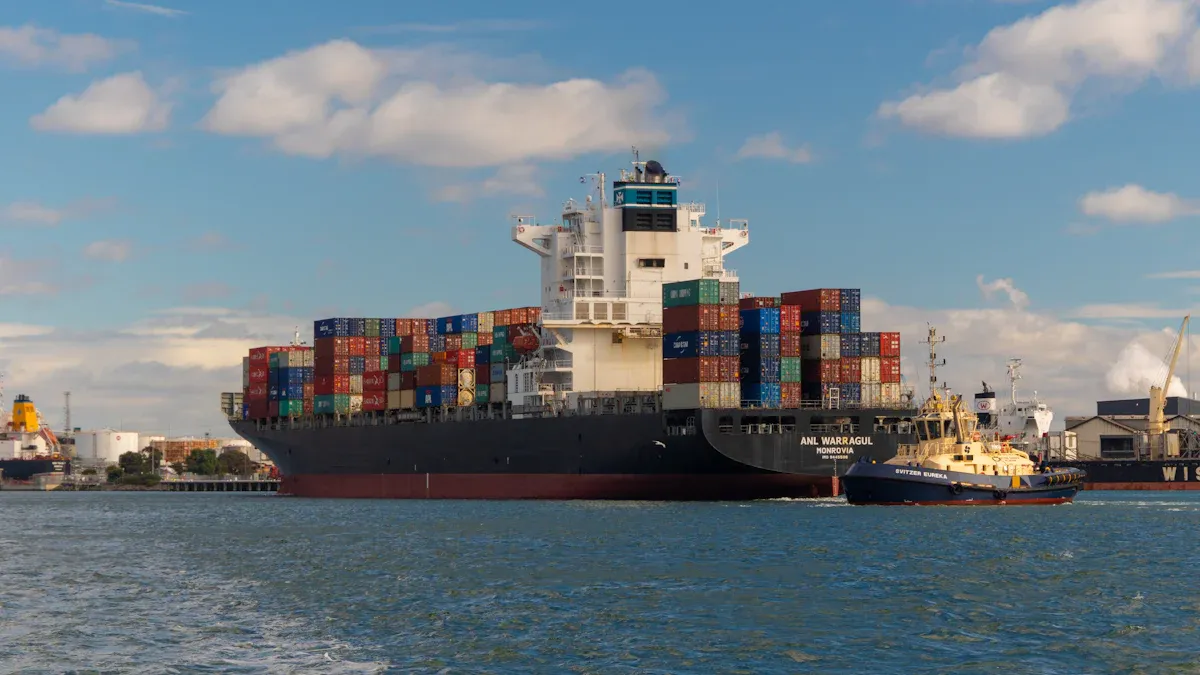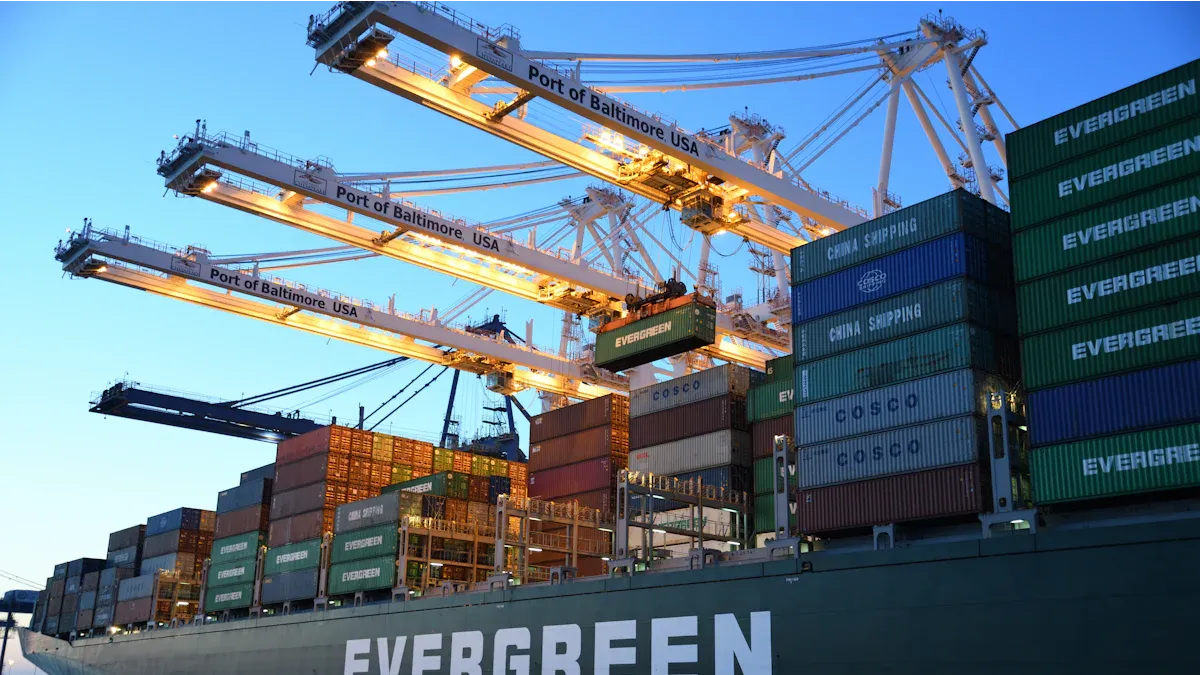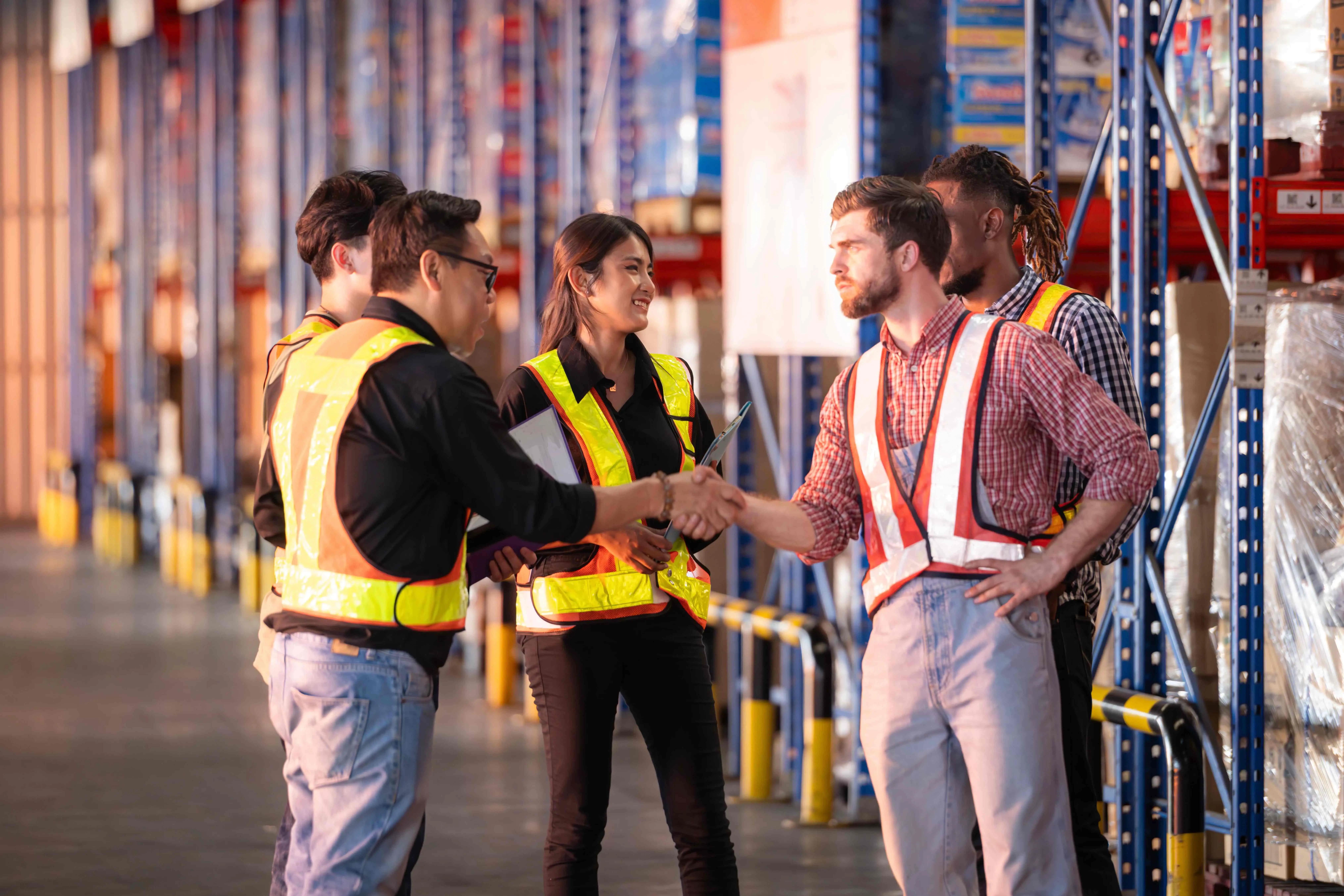Why Shipping by Sea is the Future of Sustainable Logistics

Shipping by sea is a smart and green way to move goods. Ships release just 0.1 tons of CO2 for each ton of cargo. Planes, however, release 6 tons for the same amount. Sea shipping is cheaper for large shipments and cuts emissions by 30%. This makes it a better option for worldwide trade.
Key Takeaways
Shipping by sea costs less for big shipments than air freight.
Sea shipping lowers carbon emissions, helping the environment in global trade.
JUSDA uses smart tools like AI and live tracking to improve shipping.
The Cost-Effective Solution of Ocean Freight
Why Shipping by Sea is Affordable for Large Shipments
Shipping by sea is the cheapest way to move big shipments far. It costs less than air shipping, especially for heavy loads. Many businesses pick sea shipping because it saves money on large goods. For example:
Air shipping costs too much for items over 500 kg.
Sea shipping is cheaper because it costs less to run ships.
Small businesses use sea shipping to save money and stay on budget.
Sea shipping is a good choice for global trade. It helps businesses ship goods without spending too much.
Economies of Scale in Sea Freight Operations
Sea shipping gets cheaper with bigger ships. Large ships lower the cost for each item shipped. For example:
Build Cost per dwt | Run Cost per dwt | Total Cost per dwt (Long Run Average) | |
|---|---|---|---|
30,000 | 2.5 times higher | $40 | $191 |
170,000 | 2.5 times lower | $11.8 | $74 |
This table shows how bigger ships save money. Using larger ships makes shipping more affordable and efficient. This helps businesses ship more goods without higher costs.
JUSDA's Role in Delivering Cost-Effective Ocean Freight Solutions
JUSDA offers cheap sea shipping plans made for your needs. Switching from air to sea shipping saves 20% to 30% on costs and pollution. JUSDA uses smart tools like AI and live tracking to plan better routes and avoid delays. Their trusted service helps businesses ship goods globally while saving money and time.
Environmental Benefits of Shipping by Sea
Less Carbon Pollution Than Air Shipping
Shipping by sea is better for the environment. It creates much less carbon pollution than air shipping. For example:
Air shipping makes about 500 grams of CO2 per ton per kilometer.
Sea shipping only makes 10 to 40 grams per kilometer.
Moving one ton by air creates 6 tons of CO2, but by sea, it’s just 0.1 tons.
These numbers show why sea shipping is eco-friendly. Choosing sea shipping helps lower the harm caused by global trade.
Energy-Saving Advantages of Sea Shipping
Sea shipping is both cheap and energy-saving. Ships carry lots of goods far while using less energy. But, keeping these benefits needs constant improvements. Without changes, shipping CO2 could grow 17% by 2050. Better fuels, ship designs, and systems are needed to stay efficient. These upgrades keep sea shipping a green and trusted choice for global trade.
JUSDA’s Focus on Green Sea Shipping
JUSDA works hard to make sea shipping eco-friendly. They use smart tools like AI and blockchain to save fuel and cut pollution. Their JusLink platform tracks shipments in real time to improve efficiency. JUSDA’s green efforts help businesses ship goods in a sustainable way. Picking JUSDA means helping global trade become cleaner and greener.
Scalability and Flexibility of Sea Freight
Easy Shipping for Different Cargo Types
Sea freight is great for moving all kinds of goods. It works for bulk items, fragile products, or big equipment. Full Container Load (FCL) and Less-than Container Load (LCL) options make shipping easier. FCL is best for large shipments, saving money and protecting goods. LCL lets small businesses share space, cutting costs for smaller loads. Digital tools help track shipments and simplify the process. These updates make sea freight a dependable choice for all businesses.
Worldwide Connections with Ocean Freight
Ocean freight links the world with many shipping routes. Businesses can send goods almost anywhere. By 2032, the market may grow beyond USD 108.8 billion. Sea freight supports industries like electronics and heavy machinery. This network helps businesses grow and meet global needs. Using these routes, companies can reach new markets and improve supply chains.
JUSDA's Flexible Shipping for Every Industry
JUSDA offers sea freight plans for different industries. They help automotive, FMCG, and medical businesses ship goods easily. Their JusLink platform uses AI and blockchain to plan better routes. Switching to sea freight saves 20% to 30% on costs and pollution. JUSDA focuses on growth and eco-friendly shipping for your business needs.
Innovations Shaping the Future of Ocean Freight

Green Technologies in Modern Shipping Vessels
New ship designs are helping the environment. Better fuels and smarter ships cut pollution. For example:
Cleaner fuels like LNG, biofuels, and hydrogen are being used.
Wind power and solar panels make ships use less energy.
The International Maritime Organization (IMO) wants to cut pollution by 50% by 2050. These rules push for greener technology. Smart systems at ports help ships save fuel and pollute less. Using these changes helps make shipping cleaner and better for the planet.
Digitalization and Smart Shipping with JUSDA's JusLink Platform
Technology is changing how goods are shipped. JUSDA's JusLink platform makes shipping easier. It uses IoT, AI, and blockchain to improve shipping. Key features include:
Tracking shipments in real time for better updates.
Faster booking systems that save time and effort.
AI tools that find the best delivery routes.
JusLink also uses smart sensors to track goods and reduce losses. These tools save money and make shipping more connected. JUSDA’s focus on technology makes sea shipping smarter and more dependable.
Autonomous Ships and AI-Driven Logistics
Self-driving ships are changing how goods move by sea. Projects like MUNIN and Yara Birkeland show how they work. These ships cut costs by 20% and help the environment. For example:
Yara Birkeland is electric and drives itself, showing real-world use.
ReVolt uses renewable energy to lower pollution even more.
AI tools help plan better routes and avoid risks. They make shipping faster and safer. Self-driving ships and AI promise a future with greener and cheaper ocean freight.

JUSDA Solutions
To provide you with professional solutions and quotations.
Shipping by sea is a green and affordable way to transport goods worldwide. It works well for small and big businesses alike. Smart tools like AI help plan better routes and manage shipments. Using cleaner fuels and eco-friendly methods lowers pollution. JUSDA’s smart ideas make shipping easier and better for the environment.
See Also
Exploring 2024 Trends in Sea Freight Logistics Today
A Comprehensive Overview of Eco-Friendly Supply Chain Transport
Transforming Logistics Through Innovations in Supply Chain Management
The Future of Logistics: AI's Role in Supply Chains
Navigating Future Logistics Through Advanced Digital Innovations
